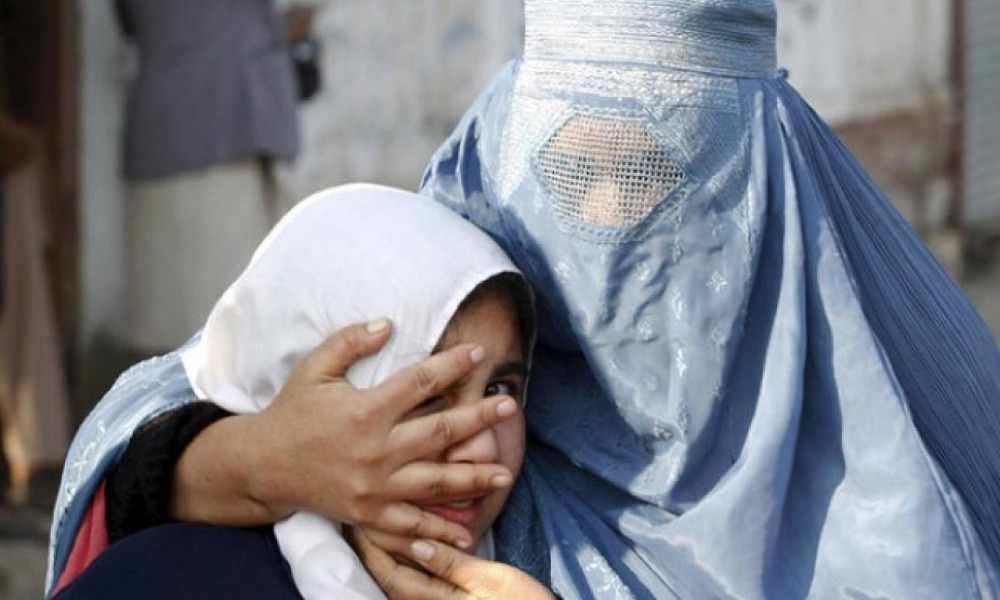Latest News
AGO records 1,173 Cases of violence against women

The Attorney General Office of Afghanistan (AGO) has recorded 1,173 cases of violence against women in the past six months.
The most common types of these violence cases include rape, beatings, harassment, forced marriage, obstruction of the right to marry, premature marriage, the prohibition of inheritance, and the prohibition of possession of the property.
The AGO said that 249 cases of beatings have been filed during the Coronavirus quarantine.
“During quarantine, men’s impatience could increase and we knew that violence would rise too; therefore, all our prosecutor’s office were open to the people and we had recorded 249 cases of beatings during quarantine throughout Afghanistan,” Sina Sheina Mansour, Deputy Attorney General for Violence against Women said.
According to the AGO, the figures include 541 cases of beatings, 141 cases of harassment, 121 cases of rapes and the rest were other acts of violence.
Meanwhile, Kabul witnessed 339 cases of violence, Herat recorded 94 cases, Daikundi reported 67 cases, Takhar registered 66 cases, Nangarhar saw 63 cases, Balkh witnessed 57 cases and the rest were reported in Faryab, Baghlan, Badakhshan and other provinces.
On the other hand, the Independent Human Rights Commission (IHRC) has recorded 754 cases of violence against women as well, most of them were registered in February by 215 cases.
“Domestic violence, forced marriages, not allowing a girl to marry by her family, absence of women’s husband and being hostage of destiny are the most key factors,” said Zabihullah Farhang, head of public relations for the IHRC.
Women’s rights defenders underline that the government should seriously investigate the cases of violence against women and culprits must be brought to justice.
Illiteracy, poverty, lack of religious knowledge, and bad traditions have been cited as the reasons for violence against women.
Latest News
Girls’ education is a ‘vital issue’ for Afghanistan: Karzai

Former president Hamid Karzai said in a meeting with Iran’s ambassador and special representative, Hassan Kazemi Qomi, that education of girls was a “vital issue” for Afghanistan.
Karzai said he appreciated Iran’s cooperation and its standing with the Afghan people, especially Iran’s contributions to education in Afghanistan.
During the meeting, Karzai said peace and stability in the region are in the interest of all regional countries.
Latest News
Uzbekistan’s humanitarian aid arrives in Balkh

A shipment of humanitarian aid from Uzbekistan was handed over on Thursday to the local officials of Balkh province in the trade port of Hairatan.
Local authorities said the aid, which includes flour, oil, wheat, sugar and meat, has been handed over by Uzbekistan’s Surkhandarya governor to the governor of Balkh.
The governor of Surkhandarya stated the purpose of sending this aid was to support the people of Afghanistan and stressed the need for the development of good relations between the two countries.
Latest News
Afghanistan’s problems caused more damage to Pakistan than 3 wars with India: Durrani

Islamabad’s special envoy for Afghanistan Asif Durrani said on Wednesday that Pakistan has suffered more due to Afghanistan’s internal situation than Pakistan has suffered in three wars with India in terms of blood spilt and finances drained.
Durrani said at a one-day International Conference titled “Pakistan in the Emerging Geopolitical Landscape”, which was organized by the Institute of Strategic Studies Islamabad (ISSI) and the German Friedrich Ebert Stiftung (FES), that over 80,000 Pakistanis died in the two decades of the War on Terror and that his country was still counting its dead and injured.
“After the withdrawal of NATO forces, it was hoped that peace in Afghanistan would bring peace to the region. However, such expectations were short-lived,” he said.
He also stated that attacks by the Tehreek-e-Taliban Pakistan (TTP) militant group on Pakistan’s border areas increased by 65 percent, while suicide attacks increased by 500 percent.
“The TTP’s enhanced attacks on Pakistan while using Afghan soil have been a serious concern for Pakistan. Another worrying aspect is the participation of Afghan nationals in these attacks,” he said.
Durrani also said Pakistan had suffered geopolitically since the Soviet Union invaded the neighboring country.
“The post-9/11 world order has negatively impacted Pakistan. Apart from losing 80,000 citizens’ lives, including 8,000 law enforcement agency personnel, the country’s economic opportunity cost is estimated at $150 billion,” Durrani said.
Talking about the future outlook for Pakistan in the regional context, Durrani said that while “our eastern neighbor is likely to continue with its anti-Pakistan pursuits, the western border poses an avoidable irritant in the short to medium term.”
However, he said Pakistan can overcome its difficulties with Afghanistan, including the TTP challenge.
-

 Latest News5 days ago
Latest News5 days agoPakistan’s frontiers minister stresses ‘dignified’ return of Afghan refugees
-

 Latest News2 days ago
Latest News2 days agoRashid Khan named AWCC’s brand ambassador
-

 Regional3 days ago
Regional3 days agoIranian president lands in Pakistan for three-day visit to mend ties
-

 Climate Change4 days ago
Climate Change4 days agoMassive river flooding expected in China, threatening millions
-

 Latest News5 days ago
Latest News5 days agoChinese keen to invest in Panjshir-Kabul water conduit project
-

 World5 days ago
World5 days agoTwo Japan navy helicopters crash, one body found, 7 missing
-

 Sport3 days ago
Sport3 days agoKolkata beat Bengaluru by one run in IPL as Kohli fumes at dismissal
-

 Sport4 days ago
Sport4 days agoACL: Aino Mina 3-0 Istiqlal Kabul; Attack Energy 3-0 Khadim
























